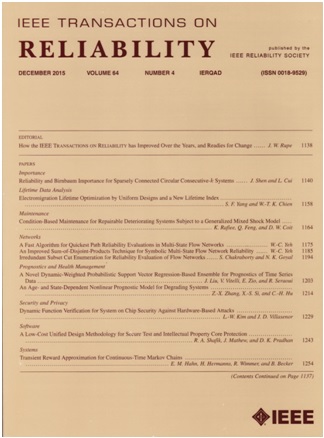基于惩罚学习函数的并行自适应可靠性分析
IF 5.7
2区 计算机科学
Q1 COMPUTER SCIENCE, HARDWARE & ARCHITECTURE
引用次数: 0
摘要
结构可靠性分析是评估不确定条件下系统失效概率的重要手段,但往往面临计算效率的挑战。虽然包括Kriging在内的基于代理模型的技术以其高精度和高效率而闻名,但它们通常采用顺序学习策略,这限制了它们并行计算的潜力。引入了局部惩罚自适应学习(LP-AL)方法,便于并行自适应可靠性分析;LP-AL引入了一个惩罚函数来模拟顺序学习策略的过程,从而实现并行化。该方法还结合了基于误差的全局停止准则和样本池缩减策略来提高效率。我们在各种工程场景中使用五种常用的学习函数对LP-AL进行了测试。结果表明,LP-AL算法精度高,计算成本显著降低,是一种适用于多种结构可靠性分析任务的可行方法。本文章由计算机程序翻译,如有差异,请以英文原文为准。
Parallelizing Adaptive Reliability Analysis Through Penalizing the Learning Function
Structural reliability analysis is essential for evaluating system failure probabilities under uncertainties, yet it often faces computational efficiency challenges. While surrogate model-based techniques, including Kriging, are known for their high accuracy and efficiency, they typically employ a sequential learning strategy, which limits their potential for parallel computation. This article introduces the Local Penalization Adaptive Learning (LP-AL) method, which facilitates parallel adaptive reliability analysis; LP-AL introduces a penalty function that emulates the process of sequential learning strategies, thereby achieving parallelization. The method also integrates a global error-based stopping criterion and a sample pool reduction strategy to enhance efficiency. We tested LP-AL with five commonly used learning functions across various engineering scenarios. The results demonstrate that LP-AL achieves high accuracy and significantly reduces computational costs, making it a viable approach for diverse structural reliability analysis tasks.
求助全文
通过发布文献求助,成功后即可免费获取论文全文。
去求助
来源期刊

IEEE Transactions on Reliability
工程技术-工程:电子与电气
CiteScore
12.20
自引率
8.50%
发文量
153
审稿时长
7.5 months
期刊介绍:
IEEE Transactions on Reliability is a refereed journal for the reliability and allied disciplines including, but not limited to, maintainability, physics of failure, life testing, prognostics, design and manufacture for reliability, reliability for systems of systems, network availability, mission success, warranty, safety, and various measures of effectiveness. Topics eligible for publication range from hardware to software, from materials to systems, from consumer and industrial devices to manufacturing plants, from individual items to networks, from techniques for making things better to ways of predicting and measuring behavior in the field. As an engineering subject that supports new and existing technologies, we constantly expand into new areas of the assurance sciences.
 求助内容:
求助内容: 应助结果提醒方式:
应助结果提醒方式:


